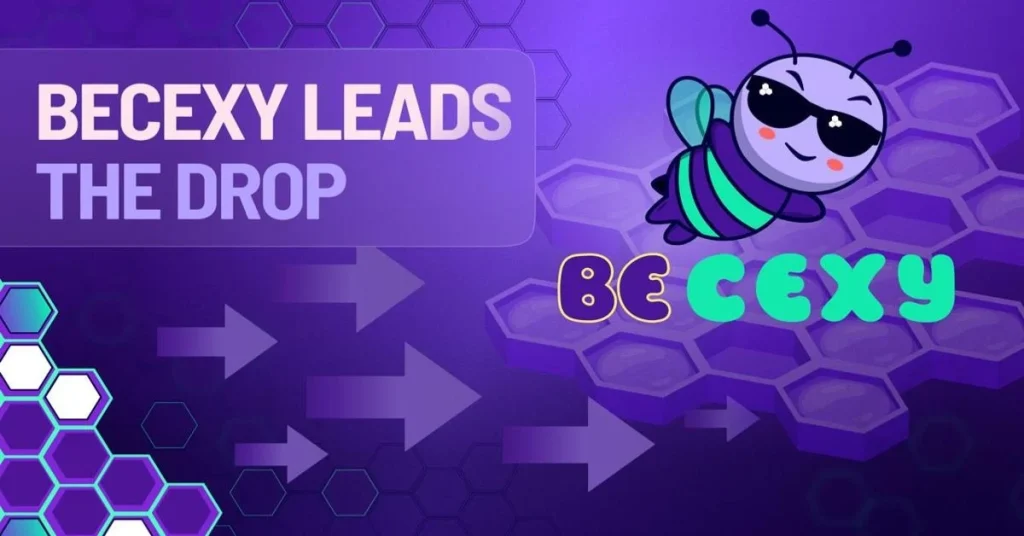ARTICLE AD BOX

It seems unlikely that Satoshi Nakamoto would have envisioned that more than 562 million people in the world would own cryptocurrency by 2024, just 15 years after he or she invented Bitcoin. The growth of crypto has been so explosive that few people realize just how new the technology still is.
Bitcoin was created in response to the 2008-09 global recession, when the value of many fiat currencies collapsed amid huge inflation. It was an alternative, decentralized currency that lived beyond the control of governments.
The idea spread like wildfire, and today there are more than 15,000 cryptocurrencies, all of them serving different purposes. Some are meant to replace money, others are designed to solve the challenges of cross-border remittances, and yet more are focused on privacy. There are others still, including thousands of community-focused memecoins with no other purpose than fun and engagement.
While many people in crypto are aiming to solve real problems in the world, the industry has also become notorious for scams, with thousands of so-called “projects” that exist simply to enrich their creators. So much so, that it has become one of the biggest challenges threatening the nascent Web3 industry.
Vaporware, Everywhere
One of the most alluring aspects of Web3 is the promise of making people rich beyond their wildest dreams. Because Web3 is so intertwined with crypto, it’s possible for early investors to make a lot of money in a very short space of time, if they back the right projects. As a result, numerous scammers have emerged to try and take advantage of people’s desires to get rich, and the Web3 industry has become notorious for so-called “vaporware”.
Vaporware is the name for Web3 protocols and dApps that offer solutions to exaggerated or non-existent problems, and they’re notorious for overpromising and underdelivering. While many have started out as genuine ideas that couldn’t be delivered on, others are outright scams from the beginning.
One of the most notorious examples was a company called Centra Tech, which was co-founded by Sohrab Sharma, Robert Farkas and Ray Trapani in 2017, touting financial products such as the Centra Card, which was meant to provide a way for people to spend their crypto in the real world.
The startup invented a “founder” called “Michael Edwards”, who supposedly held a degree from Harvard and had more than 20 years of experience in financial services. It also perpetuated lies that it had forged partnerships with entities such as Visa, MasterCard and Bancorp, and secured licenses to operate as a money transmitter in 38 U.S. states. But the entire thing was a lie, exposed after the project’s real creators tricked thousands of victims into investing millions of dollars into the non-existent venture.
The short history of crypto is littered with examples of vaporware. See BitConnect, the fraudulent crypto investment firm that once achieved a market capitalization of more than $3.4 billion, despite not actually having any investments, and OneCoin, an imaginary cryptocurrency that didn’t even know how to build a blockchain. During the ICO boom of 2017-18, hundreds of projects raised substantial amounts of money from unsuspecting investors, based on nothing more than a worthless whitepaper and lofty promises.
A Strong Track Record
When it comes to avoiding vaporware, one of the most important things to remember is that experience matters. Experienced teams, with a verifiable track record in the Web3 industry, build solid projects that solve real-world problems, rather than making incredulous claims that promise to revolutionize the world.
Although Web3 is still a new industry, numerous projects have managed to accumulate a massive amount of experience over that time.
One of the oldest crypto companies around is ConsenSys, a major player in the Ethereum ecosystem, which was founded in 2014, a year before that network even went live. It’s focused on building developer tools and dApps such as the MetaMask wallet, and has been pivotal in helping to grow Ethereum’s developer community.
In the world of NFTs, it’s hard to find a more reputable name than OpenSea. Founded in 2017, it was one of the earliest NFT marketplaces and has gone on to become one of the most successful, evolving into a platform for artists to bring their digital creations to life, expanding into blockchain gaming and more.
The DeFi industry also has its fair share of experience. MakerDAO is one of the most popular DeFi protocols around and dates back to 2014, when it was formed by Rune Christensen. After three years in development, it launched its lending platform in 2017, enabling users to take out collateralized crypto loans using its stablecoin DAI. The platform operates without intermediaries, with smart contracts managing user’s collateral, liquidating unpaid loans and maintaining DAI’s peg to the U.S. dollar. Its founders are widely regarded as among the most experienced DeFi pioneers, and they continue to hold a lot of influence in the industry.
Experienced Hands Make A Difference
New crypto projects often need a lot of assistance to bring their ideas to fruition, especially when it comes to successfully launching a new digital asset. To stand the best possible chance of success, many projects turn to so-called “market makers” that can help to facilitate the stable launch of their tokens and ensure their long term health.
As with every other aspect of crypto, there are many dubious market maker projects around using very questionable practices to “pump” the value of new tokens, to the detriment of early investors. Legitimate crypto projects need to be careful to hire an ethical market maker that avoids such methods and simply ensure the market has enough liquidity for people to buy and sell its tokens fairly.
Market making is still a fairly new concept, much like Web3 itself, but there are plenty of reputable firms around. One prime example is Kairon Labs, which was founded in 2019 and has already accumulated vast experience. Having helped to launch more than 400 tokens globally, while onboarding over 500 clients, it has a rich history of collaboration. Its team possesses decades of experience in leading traditional institutions, with expertise in asset trading, fintech, quantitative investing and financial markets.
Kairon Labs’ founding team possesses the expertise required to offer ethical market-making services, tailored for each Web3 project. This kind of experience is essential, not only to create trust in your brand, but also for making timely and meaningful strategic decisions that can make or break a Web3 project. When it comes to market stability, the decision makers need the right kind of acumen that only comes from experience.
The Web3 world is littered with tales of ingenious scams and lost fortunes, but such stories of heartbreak can easily be avoided through healthy due diligence. When it comes to success, reliability and legitimacy, the importance of experience cannot be understated.
A proven track record is essential in any industry, but all the more so in one that’s as littered with vaporware as Web3 is. Experience plays a crucial role in making crypto projects more effective and efficient, building on their innate strengths to better serve their communities and clients. With any luck, as the Web3 industry grows and gains more experience, we’ll see a much larger proportion of legitimate projects and the days of broken promises will become a thing of the past.
.png)
 4 months ago
5
4 months ago
5








 English (US)
English (US)